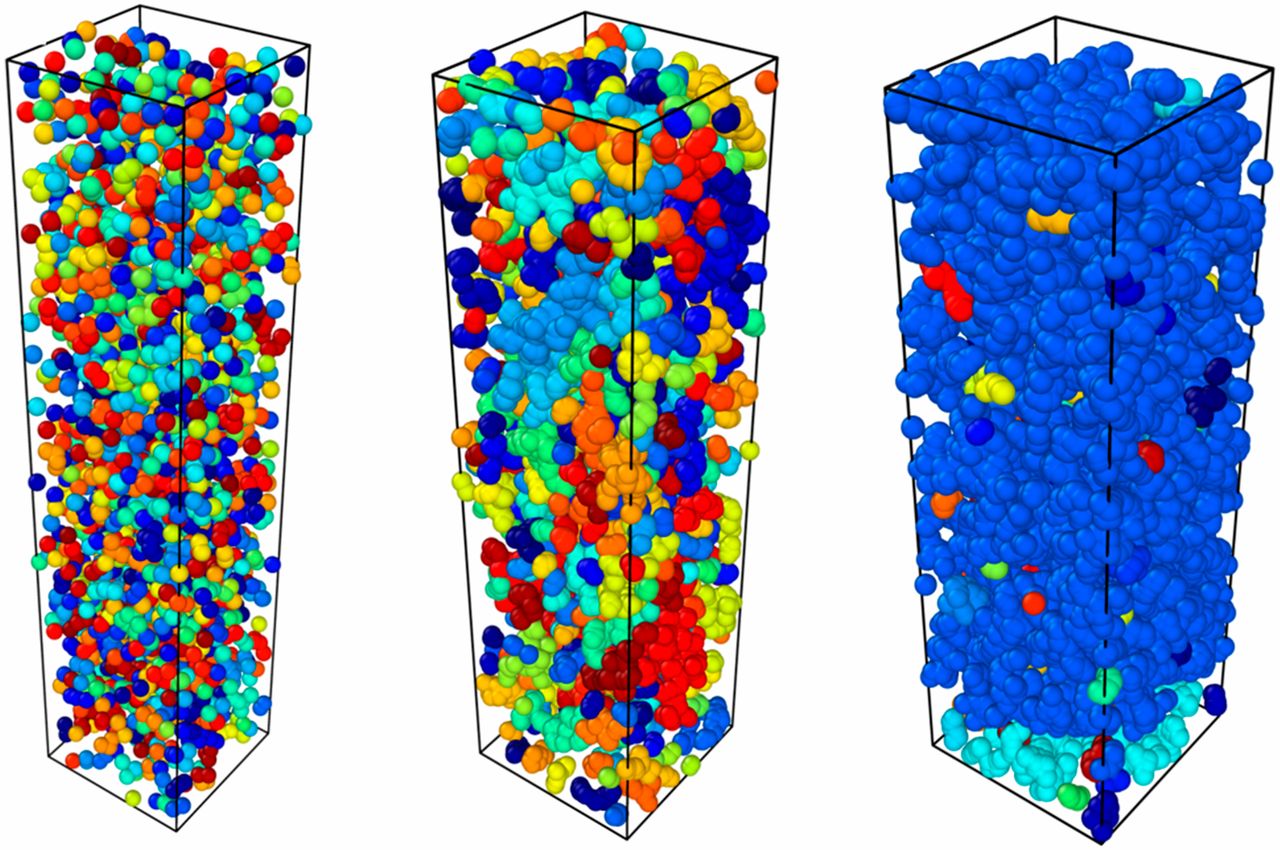Abstract
An enhanced rate of surface equilibration is critical in the formation of stable glasses (SGs) upon physical vapor deposition. We investigate the role of two factors in surface equilibration: surface diffusion and molecular relaxation below the free surface. Coarse-grained molecular dynamics simulations are used to explore the stability of microstructure-forming molecules. For molecules more prone to microstructure formation, surface diffusion slows due to clustering, while the surface relaxation dynamics slow due to the surface segregation of the tails. Combined, the ability to form SGs is significantly reduced. Importantly, we demonstrate that surface diffusion is not the only factor for SG formation, and significant rearrangements occur below the immediate free surface, resulting in reduced bilayer formation despite tail surface segregation.
